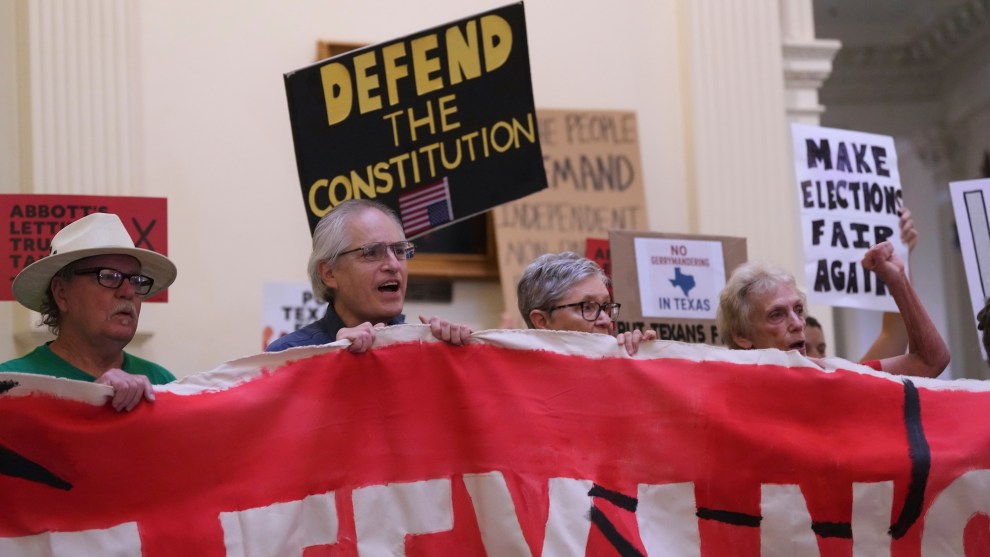What might happen to an “often cruel and treacherous” national leader who “ignored and contravened the traditional” norms at home and waged “expensive wars abroad [that] were unsuccessful”?
On June 15, 1215, just such a leader arrived at Runnymede, England and –under pressure from rebellious barons angered by his ruinous foreign wars and the fact that “to finance them he had charged excessively for royal justice, sold church offices, levied heavy aids,” and appointed “advisers from outside the baronial ranks”– placed his seal on the Magna Carta. The document, which was finalized on June 19th, primarily guaranteed church rights and baronial privileges, while barring the king from exploiting feudal custom. While it may have been of limited importance to King John or his rebel nobles (as one scholar notes, “It was doomed to failure. Magna Carta lasted less than three months”), the document had a lasting impact on the rest of us, providing the very basis for the Anglo-American legal tradition.
Over the years, the Magna Carta came to be interpreted as a document that forbade taxation without representation and guaranteed trial by jury. In the U.S., it is seen as providing a basis for the 5th Amendment to the Bill of Rights that holds: “No person shall? be deprived of life, liberty, or property, without due process of law?” (The Magna Carta states: “No Freeman shall be taken, or imprisoned? but by lawful Judgment of his Peers, or by the Law of the Land.”) While many progressive and democratic understandings of the document, popular from the seventeenth to the nineteenth century, have now been dismissed as misinterpretations, the Magna Carta has one absolutely significant feature. As the website of the U.S. National Archives and Records Administration (NARA) notes, “When King John confirmed Magna Carta with his seal, he was acknowledging the now firmly embedded concept that no man — not even the king — is above the law.”
Fast forward 561 years. Says NARA, “In 1776, the Founding Fathers searched for a historical precedent for asserting their rightful liberties from King George III and the English Parliament.” They found it in the Magna Carta. Fast forward another 230 years. Their war for independence long since over, Britain’s former rebel colonies begin the new year of 2006 on a precipice. During the previous 365 days, they saw, among other shocking displays, their Vice President publicly campaign against Senator John McCain’s anti-torture amendment and, as such, essentially offer his support for illegal torture. Then, following a failed attempt by the President to quash a New York Times story on the National Security Agency (which the paper had already suppressed for a year), the people also found out that their President had ordered unlawful spying on American citizens.
After the latter scandal became public, Attorney General Alberto Gonzales (who, in 2002 as White House counsel, penned a memo advising the President on how to circumvent the 1996 War Crimes Act) claimed that George Bush had the right to violate the 1978 Foreign Intelligence Surveillance Act (which makes it illegal to spy on U.S. citizens in the United States without prior or retroactive — within 72 hours– court approval) due to his “inherent authority as commander in chief under the Constitution.” This, despite the fact that in 2004 Supreme Court Justice Sandra Day O’Connor, writing for the court, insisted, “A state of war is not a blank check for the president when it comes to the rights of the nation’s citizens.” Bush himself then came out swinging, claiming that he had no need for the courts since he acted as his own agency of oversight, and his acts were legal because he “swore to uphold the laws.”
The President’s threatened veto of the McCain anti-torture amendment, the Vice-President’s pro-torture campaign, the President’s illegal spying, which he proudly claimed he had re-authorized many times over, his attempt to squelch the free press (which Thomas Jefferson once called “the only security of all” and about which he stated, “Were it left to me to decide whether we should have a government without newspapers or newspapers without a government, I should not hesitate a moment to prefer the latter”), and his own and the Attorney General’s defense of all of the above, are not only the latest examples of the administration’s quest to shred the U.S. Constitution and expand already vast presidential powers past anything conceivably envisioned by the founders of the United States, but also a direct attempt to overturn nearly 800 years of Anglo-American legal precedent. In other words, the administration has launched nothing short of a bid to invalidate the guiding precepts of what the U.S. government acknowledges to be the Ur document that inspired and provided precedent for America’s founders to issue their Declaration of Independence in 1776: the Magna Carta.
In 1957, the American Bar Association erected a monument at Runnymede to “acknowledg[e] the debt American law and constitutionalism” owed to the Magna Carta. Today, the defining tenet of the American legal system is in jeopardy as the Bush administration has attempted to roll back the clock to the 13th century. Such a gambit seeks to do nothing short of shatter and effectively bury the framework for the Anglo-American legal tradition by transforming the chief executive into an unchecked despot and so plunging us into a pre-1215 world. The implications are dire. As Harold Hongju Koh, dean of the Yale Law School, observed, “If the president has commander-in-chief power to commit torture, he has the power to commit genocide, to sanction slavery, to promote apartheid, to license summary execution.”
During the birth of the United States, John Adams — who also proclaimed that Britain’s rule under which “The Law, and the Fact, are both to be decided by the same single Judge” was “directly repugnant to the Great Charter [Magna Carta] itself” —
wrote of “a government of laws and not of men.” During the Watergate crisis (to hop a couple of centuries) and just after he was fired by a President who wanted to shield his criminal acts by citing the doctrine of executive privilege, Special Prosecutor Archibald Cox warned, “Whether ours shall continue to be a government of laws and not of men is now for Congress and ultimately the American people.” Just 33 years later, the question again begs answer — is this to be a nation of laws or of men? Is this to be a nation that recognizes nearly 800 years of Anglo-American legal precedent in which even the nation’s chief executive is subject to the rule of law, or one that allows that leader to assume the unchecked rights of a sovereign during the Middle Ages? Are we willing to accept the Bush administration’s latest rollback campaign and reset the calendar to 1214?
Nick Turse is the Associate Editor and Research Director of TomDispatch.com. He has written for the Los Angeles Times, the San Francisco Chronicle, The Nation, the Village Voice, and regularly for Tomdispatch. If you have whistles to blow or muck you think Nick should rake, send your insider information to fallenlegionwall@yahoo.com.
Copyright 2006 Nick Turse
This piece first appeared, with an introduction by Tom Engelhardt, at Tomdispatch.com.
















